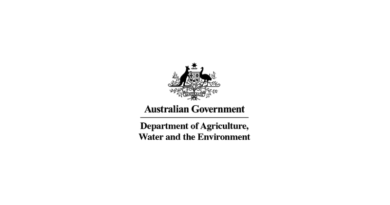Manawatū farmer sentenced to home detention
27 March 2022, NZ: A Manawatū farmer has been sentenced to 10 months home detention and disqualified from owning or exercising authority over farm animals indefinitely after 28 cattle were found to have starved to death.
Other cattle had to be humanely euthanised due to their extremely poor condition and a significant number of both sheep and cattle on the property were also found to be severely underfed and underweight.
John Baskerville Wood, (51) was responsible for 232 cattle and 1,400 sheep at his Rangiwahia farm. He was sentenced in Palmerston North District Court yesterday (24 March 2022) after pleading guilty to 5 serious charges under the Animal Welfare Act.
Ministry for Primary Industries (MPI) regional manager animal welfare and National Animal Identification and Tracing (NAIT) Compliance, Joanna Tuckwell, says the dire animal welfare situation on this farm was totally unacceptable and avoidable.
“The livestock were Mr Wood’s primary responsibility and he failed to provide proper and sufficient feed over a long period of time, leading to the deaths of a significant number of cattle.”
Following a complaint to MPI, animal welfare inspectors visited Mr Wood’s farm on 8 September 2020 to investigate.
They found evidence of severe malnutrition which likely caused the deaths of the 28 cattle found throughout paddocks and swamps on the farm. Mr Wood told the inspectors he had been aware of at least 15 of these animals dying as far back as July that year, which he put down to weather conditions and starvation. MPI found that some of the cattle had most likely entered swampy areas looking for food but were weak and became stuck in mud, eventually dying.
Inspectors found no evidence of supplementary feed being purchased or plans for the sale of cattle to reduce stock on the farm. A veterinarian brought on to the farm to inspect all animals concluded that the 28 cattle would have died slow painful deaths over about a week and this would have included multiple organ failure due to a lack of food and dehydration.
Furthermore, during the first few days of the investigation, the animal welfare inspectors and veterinarian had to humanely euthanise another 29 extremely emaciated cattle.
“These cattle were in terrible condition. They were weak and emaciated. There was no other option but to euthanise them to end their suffering,” says Joanna Tuckwell.
Mr Wood told animal welfare inspectors that he didn’t have euthanasia procedures on farm, or the means or ability to humanely euthanise animals.
“These cattle suffered unreasonable and unnecessary distress due to starvation. Most farmers do the right thing for their animals – that is, plan and ensure their livestock are always adequately fed and watered during all seasons. Failing to have proper welfare plans in place and taking no action to help animals when aware they are suffering is unacceptable,” Ms Tuckwell says.
MPI animal welfare inspectors also found Mr Wood had failed to meet the nutritional needs of 127 cattle and 600 sheep.
“Poor animal welfare behaviour can potentially affect the reputation of other farmers in the eyes of the public and in overseas markets. In New Zealand, everyone must take responsibility for their own animals. We strongly encourage anyone who is aware of possible animal ill-treatment or cruelty to report it to the MPI animal welfare complaints freephone 0800 00 83 33,” says Joanna Tuckwell.
The Court awarded costs of $15,541.80 to MPI.















